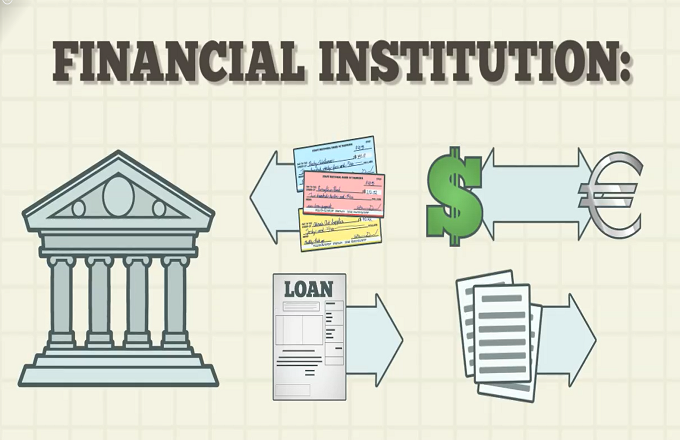
FINANCIAL INSTITUTIONS
Financial institutions are the institutions that provide all the financial services in today’s world. Financial institutions offer all the financial services like a deposit of funds, loans, investments. Some offer financial assistance to all the public, while some to only certain groups of people. Some financial institutions are helpful in some situations while some in other circumstances. All are suited for some cases best. There are different types of financial institutions like commercial banks, central banks, internet banks, credit unions, etc. I’ll explain all of them differently so that you can come to know which is best for a particular situation-
Central banks:
These are the banks that are responsible for all the working of all other banks of the country like management works, oversight, availability of funds, etc. In India, we have the Reserve Bank of India. It is responsible for the working of all the other banks in India. It looks at the overall functioning of all the other banks. It gives them funds when they require, and it seems after that bank functions according to the rule and regulations, it is responsible for all the circulation currency. It sets all the rates like repo rate, bank rate, etc. An individual can’t go directly to the central bank.
Commercial banks:
These banks provide services to individual consumers as well as to businesses. These contain various services like
- saving accounts
- fixed deposits
- loans like housing loans, education loans, personal loans,
- credit card services
- commercial deposits
In India, there are a considerable number of commercial banks like SBI, HDFC, ICICI, Indusind Bank, Yes Bank, etc. These banks report directly to the central banks.
Internet Banks:
In today’s world, due to the vast use of the internet, these banks have come into the business. These provide the same type of services as commercial banks, but the difference is that everything gets done through online platforms, and it does not have any physical location.
Credit Unions:
These serve only a specific group of people like teachers or military men. These provide the same services as commercial banks. But these are owned by their members and operated for their benefit.
Saving and Loan Associations:
These have mutually held and provide no more than 20% of total funding total lending to business. Individual consumers use them for deposit accounts, personal loans, and mortgage lending.
Investment banks and companies:
They do not take any deposits but help to raise capital for individuals, businesses, and government through the issuance of securities. These are mainly the mutual fund companies that pool funds from individuals and provide them access to broader markets.
So, there are more financial institutions other than these, but these are most common, and each one is suited for a particular situation.



